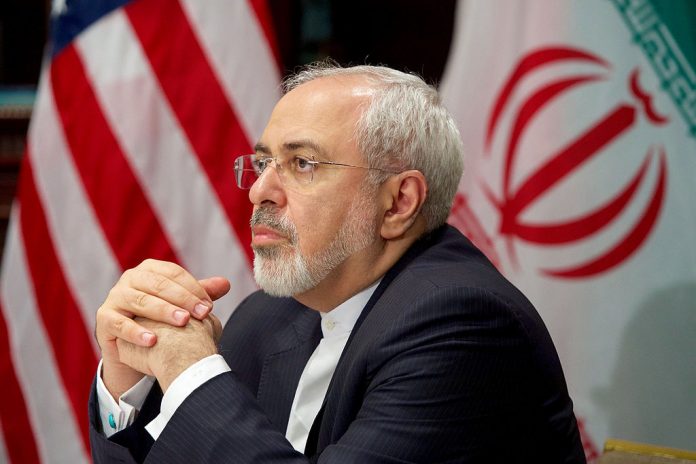While addressing the media on February 16, 2020, Iranian President Hassan Rouhani stated that Iran was not willing to engage with the US under duress or pressure. Said the Iranian President: “Iran will never negotiate under pressure … We will never yield to America’s pressure and we will not negotiate from a position of weakness”. The Iranian President also made the point, that the US could not afford a war with Iran, and even within the US, there was fervent opposition to the same.
On a number of occasions earlier too, the Iranian President has expressed willingness to keep the Joint Comprehensive Plan of Action (JCPOA) intact, and has been urging European Union (EU) to play a more pro-active role in reviving the deal, and getting the US to remove the sanctions which it had opposed on Iran (in 2018, US had withdrawn from the JCPOA)
Iran’s ties with UK, Germany and France
After an attack on Saudi Oil facilities in September 2019, as well as the killing of Iranian General Qasem Soleimaini in January 2020, the relationship between Iran and other countries like UK, Germany and France which were sympathetic to Iran, witnessed a downward slope. While UK, Germany and France held Iran responsible for the attack on Saudi oil facilities. Tehran believed that UK, Germany and France had been in effective in keeping the JCPOA alive.
Significantly, Rouhani’s remarks come days after two important developments. First, on February 13, 2020 a bipartisan bill in the US Senate has restricted Trump’s ability to wage a war with Iran without Congressional approval. A day before the bill, the US President criticized the bill, and stated that it was being done only to weaken him. Trump also said, that his Iran policy had been successful, and such a bill would tie him down in case tough action needed to be taken against Iran.
Second, on the sidelines of the Munich Security Conference, Iran’s Foreign Minister Javad Zarif stated that Iran was willing to reverse some of the breaches it had committed of the JCPOA, provided EU could address some of its concerns (Germany, France and UK had set up a mechanism, Instrument in Support of Trade Exchanges INSTEX, to bypass sanctions imposed by US ).
It would be pertinent to point out, that trade between EU and Iran has witnessed a significant dip between 2018 and 2019. In 2019, bilateral trade stood at €5.22 billion, while in 2018 it was 18.35 Billion USD.
The US not on the same page like its allies on Iran
The US has not been on the same page as UK and EU member states like Germany and France. Johnson has been in favour of negotiating a fresh nuclear deal, while EU has been making frantic efforts to keep the current deal intact. The US President himself, and Senior officials in the Trump cabinet have expressed their disapproval with regard to the approach of UK, Germany and France regarding economic ties with Iran. This includes former National Security Advisor John Bolton, as well as Secretary of State, Mike Pompeo.
What is clearly evident is that Iran is willing to engage in spite of being pushed to the wall economically, but the US President is not willing to push back. The bill passed in the US Senate, also reiterates the point that not just Democrats, but even Republicans realize the perils of escalating the conflict with Iran. While the President too may ultimately have to avoid all out conflict, he may feel that upping the ante vis-à-vis Iran may benefit him in the Presidential election, as he can project his muscular image and burnish his ‘America First’ orientation (though some would argue, that it may have the opposite effect)
Another important point is that the US Secretary of State Mike Pompeo during his address at the Munich Security Conference portrayed the ‘Trans Atlantic’ Alliance as strong. He said that all talks of the Trans Atlantic Alliance being under threat were over exaggerated, and that the ‘West’ was winning, and doing so jointly.
Developments of the past few months and weeks clearly indicate, the EU is keen on the restoration of JCPOA. UK too is likely to adopt an independent stance on the Iran issue and not likely to toe the US line. Differences between US and Germany, France and UK are not likely to be resolved easily given Trump’s inflexible stance.
It remains to be seen how President Trump reacts to Rouhani’s remarks, and whether he is willing to adopt a pragmatic stance towards Iran. EU and other important players such as Japan, Russia, China need to work to reduce tensions with Iran, in order to prevent major geo-political turbulence in the Middle East. On the sidelines of the Munich Conference, EU’s High Representative for Foreign Policy, Josep Borrell, did meet with Foreign Ministers of Russia and China and stated, that he was committed to keeping the JCPOA alive. Pragmatists in the US also need to keep the pressure on the Trump administration, and highlight the limitations of conflict with Iran. Tehran on its part needs to continuously engage with reasonable voices in the International Community, and exercise restraint and exhibit patience.
The views and opinions expressed in this article are those of the author and do not necessarily reflect the official policy or position of The Geopolitics.

Tridivesh Singh Maini is a New Delhi based analyst interested in Punjab-Punjab linkages as well as Partition Studies. Maini co-authored ‘Humanity Amidst Insanity: Hope During and After the Indo-Pak Partition’ (New Delhi: UBSPD, 2008) with Tahir Malik and Ali Farooq Malik. He can be reached at [email protected].


